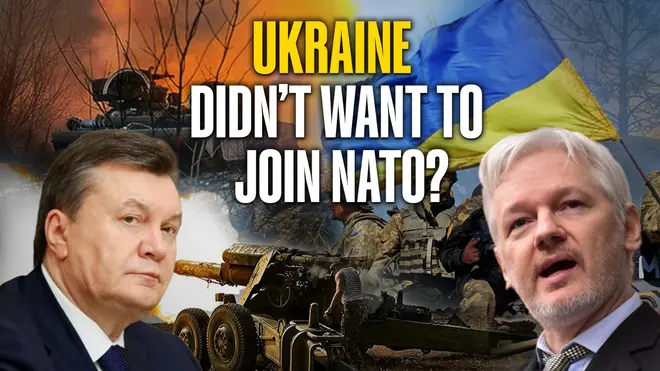‘They Knew All Along’: Wikileaks Cable In Lead Up To War Reveal Ukraine Didn’t Want to Join NATO- wna24
[ad_1]

‘They Knew All Along’: Wikileaks Cable In Lead Up To War Reveal Ukraine Didn’t Want to Join NATO | Image:
Republic Digital
New Delhi: The Moscow and Trump administration, have consistently argued that Ukraine’s desire to join NATO fueled the Russia-Ukraine war, but a 2009 US State Department confidential cable released by Wikileaks revealed that under the presidency of Viktor Yanukovych, Ukraine did not want NATO membership.
A confidential cable dated 25 November 2009 between Kyiv-based US State Department Political Counselor Colin Cleary and Washington, DC, was sent to the Commonwealth of Independent States, NATO-European Union Cooperative, and Secretary of State Hillary Clinton.
Colin Cleary’s cable offers a glimpse into Former President Viktor Yanukovych’s potential foreign policy if he won the 2010 Ukrainian presidential election. After meeting with Anatoliy Orel, a senior advisor to Yanukovych in Kyiv, the prediction came true when Yanukovych assumed the presidency on February 10, 2010.
NATO Membership “Makes No Sesne” To Ukraine
In the cable, Cleary reported that Orel “asserted” NATO membership “makes no sense” for Ukraine, Orel added, “The public is overwhelmingly against it.”
Cleary mentioned that Orel predicted that the U.S. War on Terror and Operation Enduring Freedom would result in a “Vietnam-like failure for the Alliance.” Yanukovych’s team also feared that seeking NATO membership would “needlessly complicate relations with Russia.”

At the time of Orel’s meeting with Cleary, Ukrainian troops were already deployed in Afghanistan as part of the International Security Assistance Force. This multinational military mission operated between 2001 and 2014.
Also Read: Willing to Give Up Presidency If It Means Peace, Says Zelenskyy
Following the mission, Ukrainian forces transitioned to a non-combat role in Operation Resolute Support, focusing on training the National Army of Afghanistan. In June 2021, President Volodymyr Zelenskyy withdrew the last 21 Ukrainian soldiers from Afghanistan, marking the end of a 14-year deployment.
Yanukovych publicly said his support for cooperation with NATO but made it clear he would not seek membership.
Internal Reforms To Drive Ukraine’s EU Membership
Mykola Azarov, two days before the meeting between Cleary and Orel, told US embassy staff that “economic reform in Ukraine should come from within and need not be driven by harmonization with the EU (European Union).” Orel believed the E.U. would never allow Ukraine to become a full member, as its agricultural and industrial resources would be the largest in the bloc, potentially “undercutting prices in Europe.”
Azarov aimed to establish bilateral trade with the EU and felt that complying with numerous reforms without guaranteed membership was “demeaning.”

At the time of Cleary’s meeting, the E.U. and Ukraine were under a Partnership and Cooperation Agreement, with broader negotiations underway for an Association Agreement (AA). The AA was approved in March 2012, setting Ukraine on a path to E.U. accession.
Later that year, E.U. Commissioner Stefan Fule said that the AA and Deep and Comprehensive Free Trade Area (DCFTA) agreements could be signed in November 2013 if Ukraine implemented further reforms.
Other Elements of Viktor Yanukovych’s Foreign Policy
As per the confidential cable released by Wikileaks, Orel said to Cleary that a Yanukovych administration would adopt a new foreign policy, if he becomes President.
Following are the foreign policy changes mentioned in the Cable:
- A reset in relations with Russia, generally deferring to Russia’s red lines
- Non-bloc status and an end to Ukraine’s NATO membership aspirations, but some continued engagement with NATO
- Relations with the European Union on “equal terms” but without membership
- Openness to renegotiate extension of the Russian Black Sea Fleet lease in Sevastopol past 2017
- Cooling of relations with Saakashvili’s Georgia, but probably no near-term recognition of South Ossetia or Abkhazia
- Pragmatic relationship with the US
The cable contains 13 paragraphs, covering topics such as NATO membership, joining the European Union, and continuing military support for Georgia, which faced Russian occupation of Gori in August 2008.
[ad_2]
Source link
